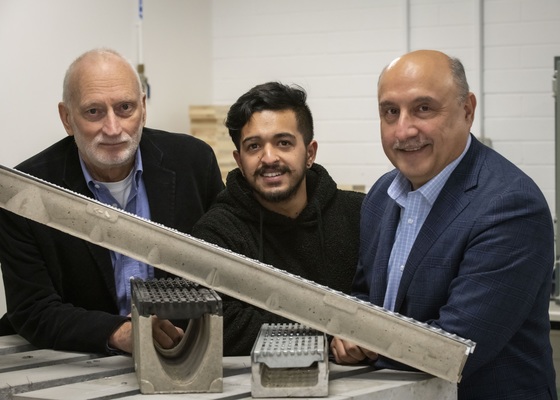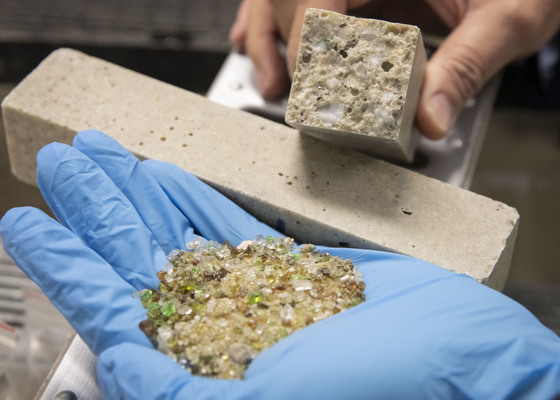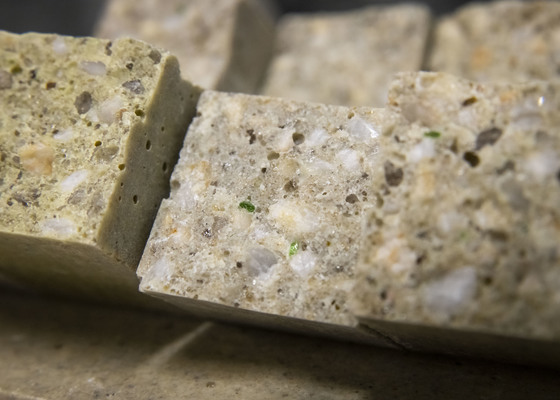Waurn Ponds researchers have found a way to use previously-unrecyclable glass as a substitute for sand in a common type of concrete.
The Deakin School of Engineering researchers ground recycled or waste glass for use in polymer concrete, a material common in industrial flooring.
Senior engineering lecturer Riyadh Al-Ameri said adding ground glass resulted in a stronger product that was less costly to produce.
“Mined sand requires washing and grading before it is added to aggregate, cement and water to make concrete,” Dr Al-Ameri explained.
“Concrete is a major construction material and sand is one of its primary components, so finding an alternative to sand makes good economic sense.
The Deakin research could be a game-changer in the production of polymer concrete and, potentially, other concretes, Dr Al-Ameri said.
“Any changes that reduce the cost of production will lead to significant gains across the industry, potentially on a global scale.
“The construction industry represents six per cent of global gross domestic product, according to the World Economic Forum.”
Substituting glass for sand created a sustainable use for a major recyclable in Australia’s waste stream, Dr Al-Ameri said.
In the next stage of analysis Deakin researchers would examine substitutes for aggregate in polymer concrete, optimise the substitution rate, assess durability and investigate commercialisation, Dr Al-Ameri said.
Polymer concrete uses polymers, typically resins, to replace lime-type cements as a binder.
This produces a high-strength, water-resistant material suited to industrial flooring in areas subject to heavy traffic like service stations, forklift operating areas and airports.
Deakin engineering student Dikshit Modgil worked with Melbourne-based Orca Civil Products as part of his masters research into using glass in polymer concrete production.
Orca director Alan Travers said the research partnership produced results that would be useful in commercialising the concept.
“The specific type of waste glass used in this project was unsuitable for recycling back into glass and the amount that is stockpiling is becoming a community problem,” Mr Travers said.
“The concept has even more appeal to us because of predicted shortages of natural, mined sands in the medium term.”











